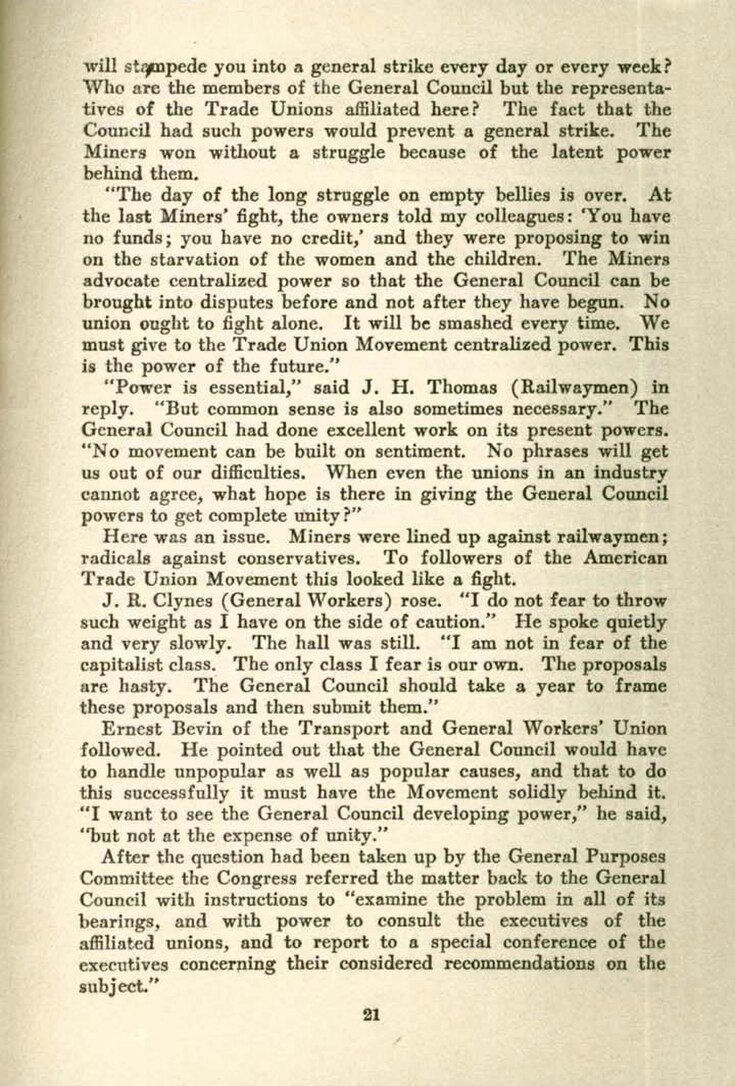will stampede you into a general strike every day or every week? Who are the members of the General Council but the representatives of the Trade Unions affiliated here? The fact that the Council had such powers would prevent a general strike. The Miners won without a struggle because of the latent power behind them.
"The day of the long struggle on empty bellies is over. At the last Miners' fight, the owners told my colleagues: 'You have no funds; you have no credit,' and they were proposing to win on the starvation of the women and the children. The Miners advocate centralized power so that the General Council can be brought into disputes before and not after they have begun. No union ought to fight alone. It will be smashed every time. We must give to the Trade Union Movement centralized power. This is the power of the future."
"Power is essential," said J. H. Thomas (Railwaymen) in reply. "But common sense is also sometimes necessary.” The General Council had done excellent work on its present powers. "No movement can be built on sentiment. No phrases will get us out of our difficulties, When even the unions in an industry cannot agree, what hope is there in giving the General Council powers to get complete unity?"
Here was an issue. Miners were lined up against railwaymen; radicals against conservatives. To followers of the American Trade Union Movement this looked like a fight.
J. R. Clynes (General Workers) rose. "I do not fear to throw such weight as I have on the side of caution." He spoke quietly and very slowly. The hall was still. "I am not in fear of the capitalist class. The only class I fear is our own. The proposals are hasty. The General Council should take a year to frame these proposals and then submit them."
Ernest Bevin of the Transport and General Workers' Union followed. He pointed out that the General Council would have to handle unpopular as well as popular causes, and that to do this successfully it must have the Movement solidly behind it. "I want to see the General Council developing power,” he said, "but not at the expense of unity."
After the question had been taken up by the General Purposes Committee the Congress referred the matter back to the General Council with instructions to "examine the problem in all of its bearings, and with power to consult the executives of the affiliated unions, and to report to a special conference of the executives concerning their considered recommendations on the subject."
21
